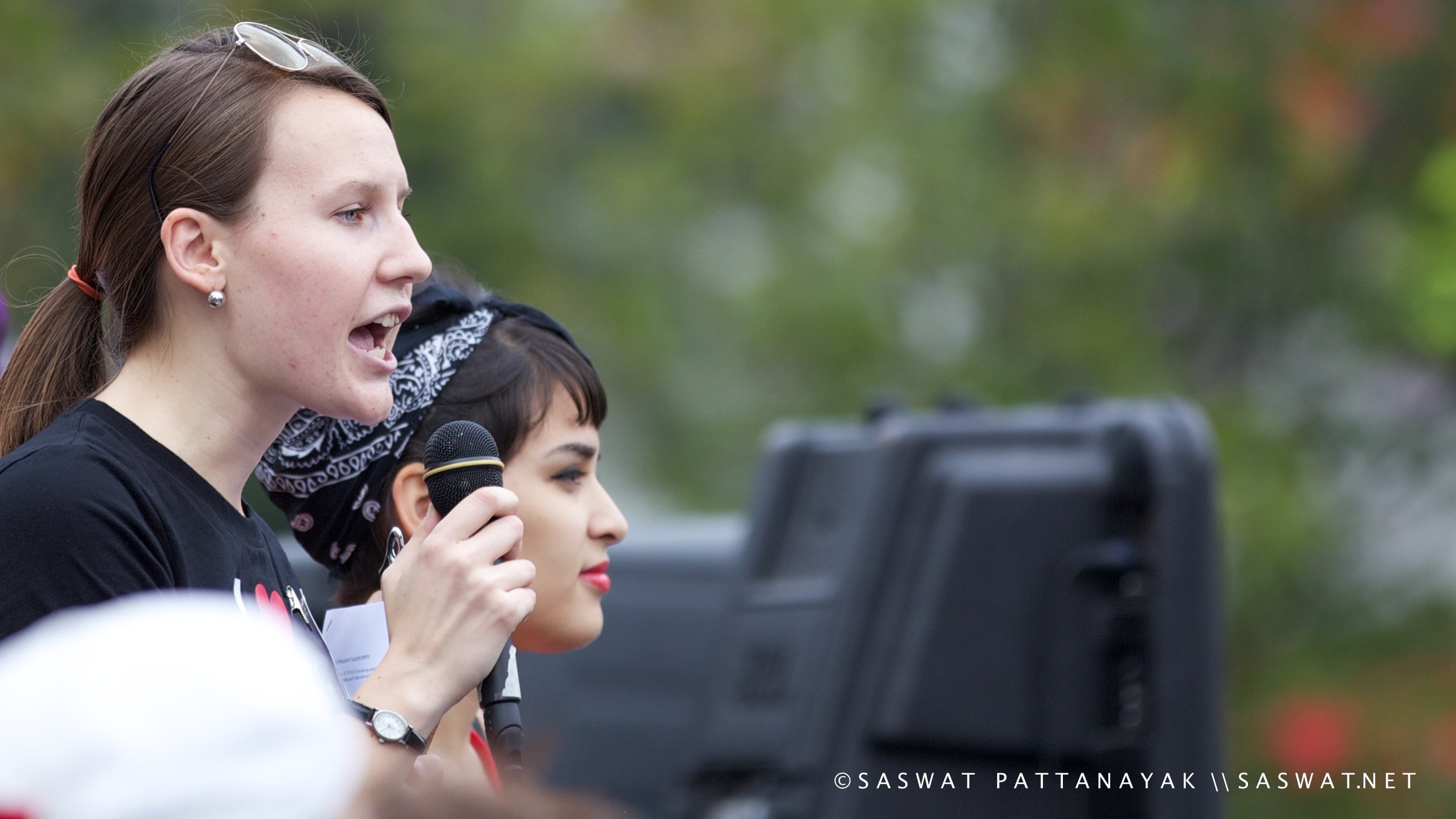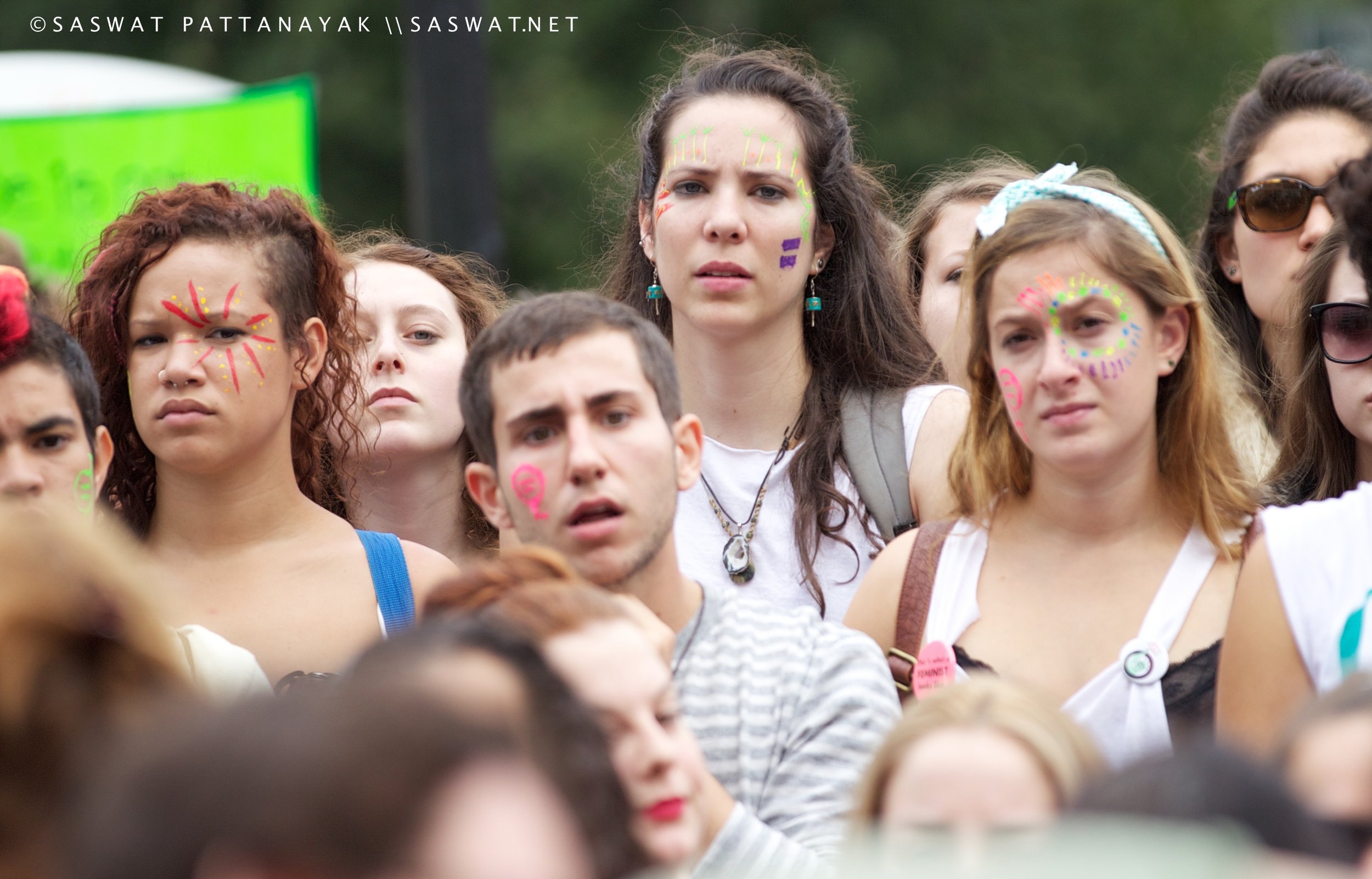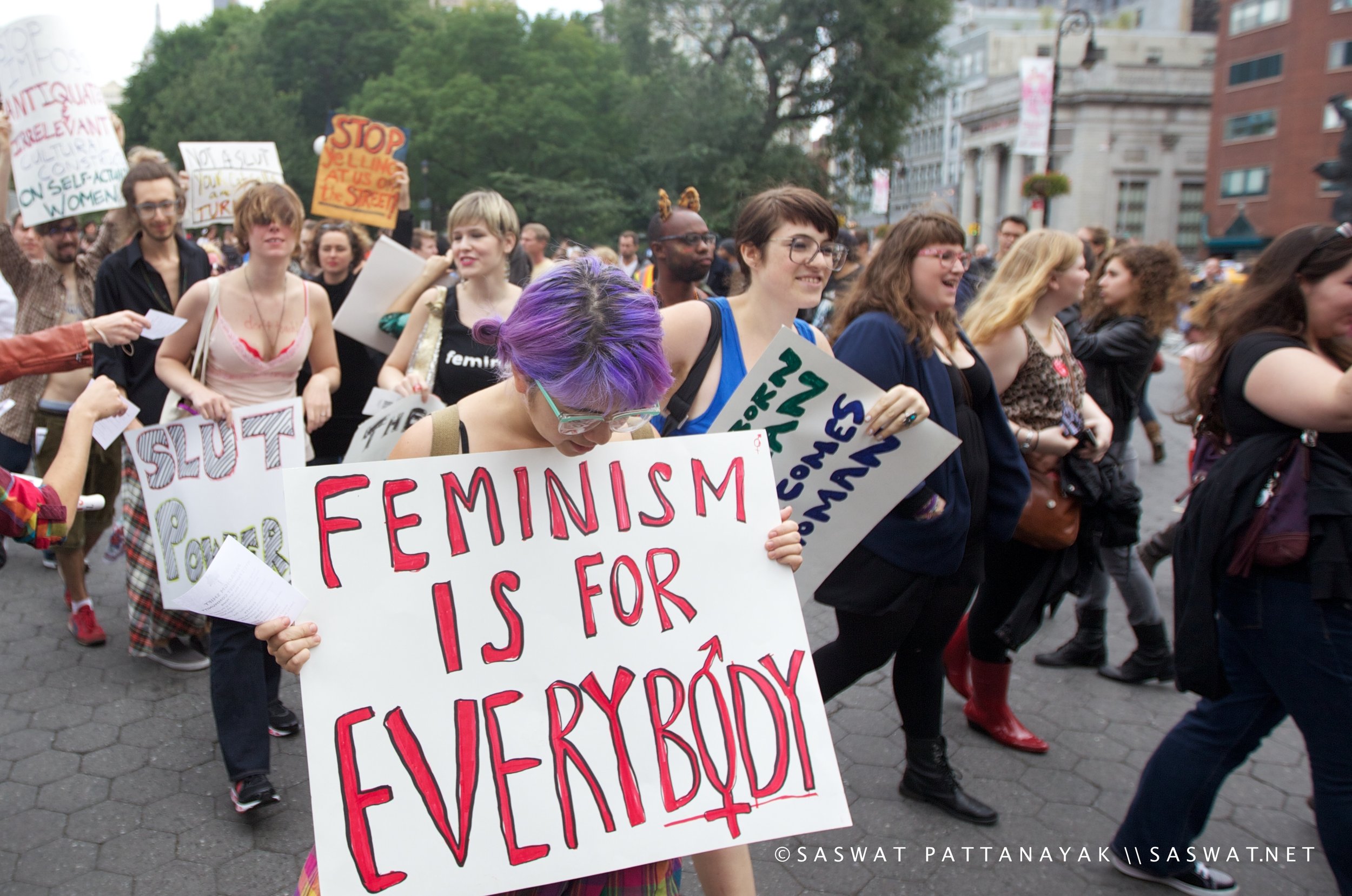SlutWalk Must Evolve Into WomanWalk!
By Saswat Pattanayak
New York, October 3, 2011
SlutWalk has turned out to be a phenomenal movement on a global scale, aimed at challenging rape culture, rampant sexual violence, victim-blaming and slut-shaming in our society.
Historically, in the garb of tradition, culture and mannerisms, men have conveniently imposed upon women certain moral standards that upholds patriarchy, reduces women into objects of either desire, lust, or procreation while at the same time stripping them off their intrinsic and equal human rights as individuals who can object to such strictures as and when necessary.
In so many ways, a movement such as SlutWalk is a vociferous expression of the radical notion that women are human beings at equal footing with men in our vastly sexist world. Women must be able to wear what they want to wear (or, not wear), they must be able to consent to sexual advances when they want to engage in a sexual activity, and similarly, their wishes must be respected whenever they refuse to be touched. No matter if a woman is being “slutty” or being “serious”, when she says maybe, it means maybe, when she says yes, it means yes, and when she says no, it means no. A woman – a girlfriend or a wife, a co-worker or a flight attendant, a model or an adult porn actress, a sex worker or a corporate bank employee – she must be allotted a lifetime of safe space, no matter what role she is expected to play in a society.
A movement such as SlutWalk probably acknowledges this. After all, it is quite liberating to witness women on the street wearing short skirts and bikinis and holding placards that say “my skirt is not worn for you”. As a form of new tactic against rape culture, which began in Toronto, Canada this March, when a police officer told a group of women that the best way to protect themselves would be to “stop dressing like sluts”, SlutWalk is at once emancipatory, and it creates a platform for the women to speak their selves in manners never experienced before in the world.



The Lessons from the Past
Except, that, SlutWalk might have overlooked the lessons from the First and Second Waves of feminist movements. This is clearly a movement which welcomes everyone, except that it has failed to recognize that not everyone might have felt welcomed. Reclaiming of the word “slut” or normalization of the word “rape” – especially as a metaphor – is often a privilege duly limited to the educated white liberals. Majority of women in the world – which obviously includes “Third World” women in Asia and Africa, and the African-American women right here in the United States – may find the word “Slut” not only unacceptable at every level, they also shiver at the thought of the word being reclaimed by their sisters.
There is a great necessity to reexamine not the spirit of the movement as such, but the framing of it. Slut as a word is much similar to the “Ho” word, which in turn is similar to the N-word. There is no telling how women should and must have every right to wear or not wear whatever they want to, irrespective of what their parents, teachers, preachers, or the so-called societal traditions demand of them to. But that is not an equivalent position with that of associating oneself with the very demeaning phrases the majority of women in the world are struggling to dissociate themselves from. In fact, quite the contrary.
Women of color have struggled to position themselves in the larger feminist struggle for several decades now, essentially because their unique/exclusive issues have not been taken up by the mainstream liberal feminists. The significant contributions of the early feminists notwithstanding, it is critical to note that the inherent biases of the theorists of the first and second wave were informed by the dominant consciousness of the respective times. The feminists of those periods (from 1930’s to 1970’s) had drastically failed to understand and apply lenses of social location intersections. Whereas the white women struggled for dignity of labor and hoped that their struggles would equate their worth with that of their husbands, the women of color struggled at a much more oppressed level, usually riled up within more than doubly oppressed states. Women of color not only had to raise their voice up against the racism perpetuated by white men and white women during those times, but they also had to contend with their own husbands and other male family members who, largely due to their own enslaved situations were more vulnerable in terms of displaying masculine tendencies mirrored after the masters.
Its fashionable today not only to forget the lessons of slavery as though it took place in another planet, but also to conveniently ignore the evolution and lessons from feministic growths, the complexities within the feminist movements when it comes to allowance for intersections of gender, race, class and nationalities to be addressed.
For the above reasons alone, the first SlutWalk in New York City was an uneasy experience for me. It had a conspicuous absence of women of color. Not because women of color do not agree with the vision that consent is more important than clothes, but because the existing tensions and appeals were being sidelined or ignored by the core organizers. When women of the world perceive themselves as the oppressed gender, they can merely look towards the most oppressed among them for the most essential issues that pose as the common denominator across classes, if not races. And this is where the SlutWalk failed to empathize with the very women they claimed to represent.
The Challenges Ahead
Relabeling is the foremost key. Slut as a word does not need to reclaimed, it needs to be denounced. Again, it need not be shamed, it needs to be eliminated. Much like the N-word. Especially when Slut or the N-word are used by the privileged class, they take a different dimension. Often people argue if it amounts to hypocrisy to suggest that Black people can utter N-word, whereas they do not approve of its usage by the people of other races. The reality is an objection to this demand for sensitivity is more often than not the case of historical misreading. Most pejorative or slang terms today owe their origins to the creators of the dominant narratives, who have over the time been privileged enough to move farther away from the underground they created; and with time the historically privileged have embraced certain modes of sophistication in an elitist manner.
However, the ones who were victimized by the nasty words have over the time “owned” those very words that were meant to demean them. Unable to gain entry into the elite clubs of mannerisms, for the oppressed, they have probably nothing left except what is their own, by default, for better or worse. There are scores of “Snaps” they repeat to each other in ways that can shock the uninitiated. For example, some snaps include creating jokes about the rival’s mother being blacker than one’s own! It would be ghastly racist if a person from another race creates such a joke for amusement. But this is part of the cultural heritage, howsoever unacceptable, for the oppressed. This duality that exists in terms of pejorative usages of adjectives is bound to disappear over time. Or it will disappear with conscious movement from within the Black people themselves. But any attempts to reclaim the racist and sexist terms on part of the privileged gender or race in order to universalize its usage in a trivial manner is bound to spark debates and consequently, condemnation.
Considering the technological possibilities, this is the most feasible time for greater unity among women all across the world. And while attempts are being made in this direction, it is crucial not to alienate those very women who are the most oppressed. In this sense, SlutWalk should probably have addressed to the emotional (and rational) appeal made by Black Womens Blueprint. Instead, like the flawed feminism of the past century, the issues have got all mixed up this time. In place of serious reflections on the most pressing issues of rape culture, there is sensational attempts for media space while relegating black women to the sidelines.
Without the working class women – and men – of color, no feminist movement will ever resemble more than a repackaged bourgeois coalition of neocolonial mindsets. Let the black women take the stage, propose the agendas and carry out the next WomenWalk. Inclusiveness should be the only priority now, if patriarchy has to be systematically addressed. And a movement that does not include its most oppressed, turns out as history suggests, most opportunistic.
(Saswat Pattanayak, 2011)
Further Reading:
“SlutWalk: A Stroll Through White Supremacy” by Aura Blogando
“Why I Don’t Care to SlutWalk” by Chai Shenoy
“Ladies, We Have a Problem” by Rebecca Traister
“AF3IRM Responds to SlutWalk: The Women’s Movement Is Not Monochromatic.”
“The Open Letter”
“SlutWalks v. Ho Strolls” by The Crunk Feminist Collective
“Woman is the N of the World…” placard held by Erin Clark and others –